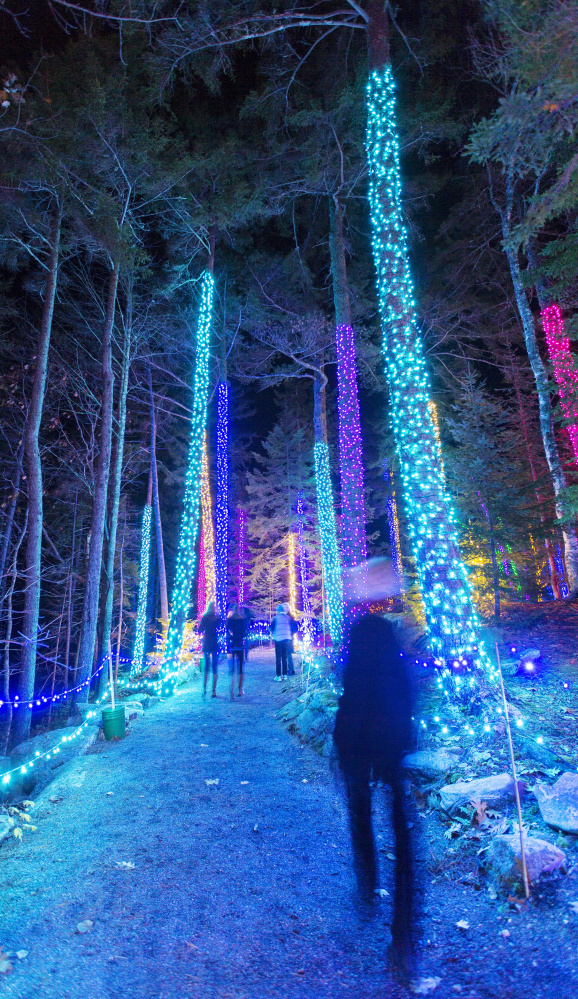Coastal Maine Botanical Gardens has sued the town of Boothbay, alleging the town’s Board of Appeals violated the nonprofit organization’s constitutional right to due process when it voted in November to overturn the Planning Board’s approval of a $30 million expansion.
In a complaint filed in U.S. District Court in Portland on Dec. 20, Coastal Maine Botanical Gardens said the appeals board process was “tainted” in part because it allowed two members to vote after they held private meetings with abutters opposed to the expansion project. The suit identifies those board members as Scott Adams and Stephen Malcom.
The board of appeals, with Adams and Malcom in the majority, voted 3-2 in November to rescind a building permit approved by the Planning Board. Richard Perkins, the board’s chairman, voted with Adams and Malcolm. The project is already underway.
In the federal suit, lawyers for the gardens allege that Adams and Malcom were given private tours by members of the Anthony family, whose property abuts the 270-acre gardens and who have been leading the fight against the gardens’ expansion. The Anthonys and other townspeople are concerned about the impact an expansion of the complex might have on water quality in nearby Knickerbocker Lake – one of the town’s principal sources of drinking water.
George F. Burns, the Portland-based lead attorney for the gardens, referred all questions about his client’s suit to the 15-page complaint that was filed last week.
“The ex parte proceedings that Mr. Malcom and Mr. Adams separately conducted with the Anthonys provided the Anthonys a unique opportunity to privately discuss the pending appeal and their private concerns with board members,” the lawsuit states. “Mr. Malcom and Mr. Adams’ ex parte proceedings violated the gardens’ clearly established constitutional due process rights guaranteeing notice and the opportunity to be heard at all government proceedings where evidence putting a party’s property rights at stake is gathered.”
The botanical gardens, which opened a decade ago, first announced its plans to expand in late 2015. In December 2016, the town’s Planning Board approved the project, which will feature a new visitor center and gift shop, a restaurant in the visitor center, a horticulture research and production facility, a six-story conservatory and expanded parking, along with more gardens and trails.
Gardens officials say the expansion is needed to accommodate increased public demand. The site, home to dozens of varieties of flora that bloom with the seasons, has become increasingly popular, in part because of its annual Gardens Aglow event. Gardens Aglow is an annual holiday event billed as the state’s largest light show. It ends Dec. 31.
Last year the light show attracted about 75,000 visitors.
The first phase of the gardens expansion project, which got underway this year, includes paving a significant portion of the property to improve parking and double the number of spaces to about 900 – similar in size to a big-box store.
When reached by phone Tuesday night, Malcom said he didn’t believe he did anything wrong when he decided to visit the property earlier this year by himself. He said he unexpectedly met Kevin Anthony, whom he already knew through other town activities. They talked about the impact the gardens project might have on the Anthony property as well as Knickerbocker Lake.
“I was trying to educate myself as best I could. I had no idea that in the pursuit of knowledge that I couldn’t do my own research,” said Malcom, who has served on the board of appeals for 16 years. After word got out that the two men had met, the board of appeals, which consists of five members, conducted its own site walk.
“I felt like we undid any wrong that I may have committed,” he said of the board’s site walk.
However, according to the lawsuit, the board’s site visit resulted in “a fruitless effort to purge the taint of Mr. Malcom and Mr. Adams ex parte proceedings.”
The lawsuit says that a majority of the board of appeals decided the botanical gardens was a museum, a use that is not allowed in the watershed zone. The gardens argued that it is an educational facility, which is allowed in that zone.
Sally Daggett, the town’s attorney, and John Shumadine, the board of appeals’ attorney, could not be reached for comment Tuesday.
Adams also could not be reached for comment Tuesday night.
The gardens is seeking a declaration from the court that the town of Boothbay violated its constitutional rights and asks that the court reverse the Board of Appeals’ 3-2 decision.
Send questions/comments to the editors.




